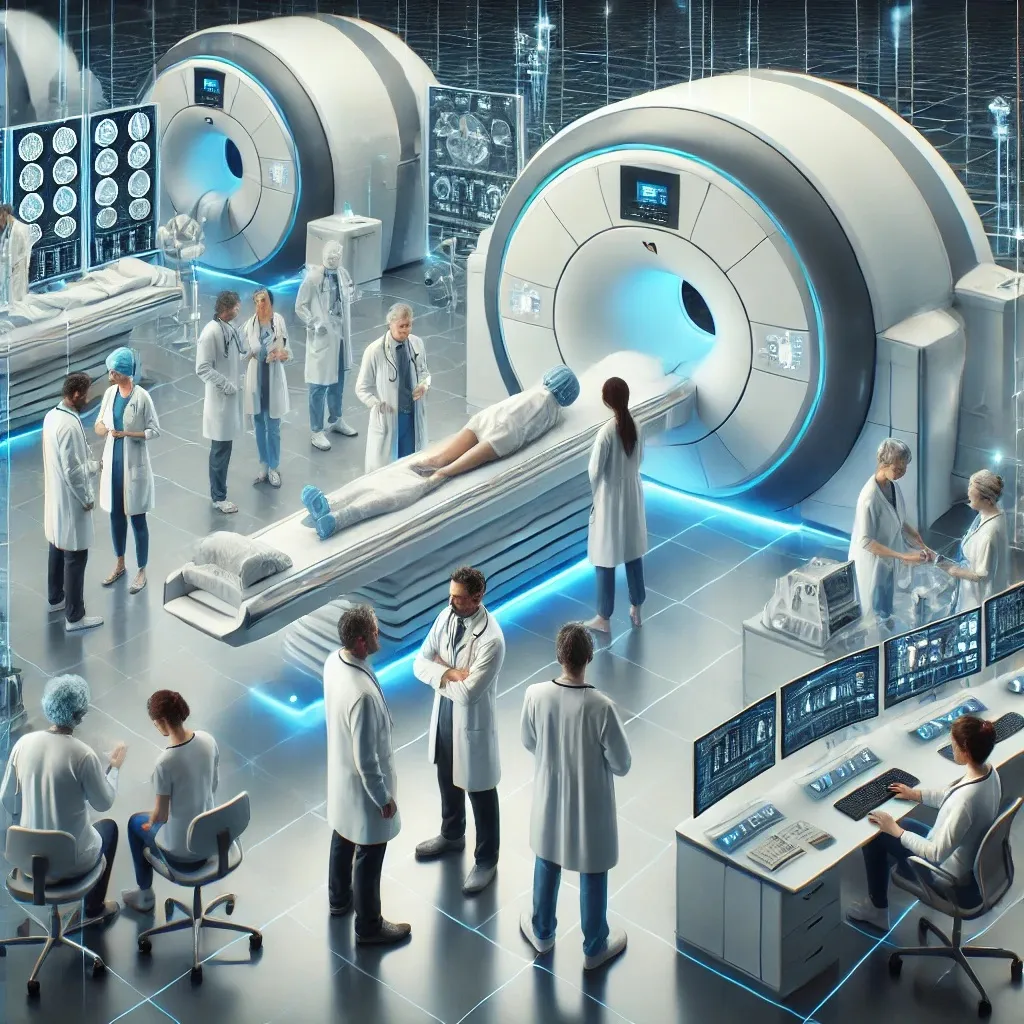Magnetic Resonance Imaging (MRI) is a critical tool in cancer diagnosis and treatment planning. Recent innovations in MRI technology are enhancing its accuracy, effectiveness, and application in oncology, providing better outcomes for patients.
Key Developments
AI-Enhanced MRI
Artificial intelligence (AI) is transforming MRI technology by improving its ability to detect cancer. A recent study demonstrated that AI could detect prostate cancer on MRI scans more accurately than radiologists. This technology enhances diagnostic precision, reduces the need for invasive biopsies, and helps in early detection of clinically significant cancers.
MRI-Guided Radiation Therapy
MRI-guided radiation therapy, such as the MRIdian SMART system, represents a paradigm shift in cancer treatment. This system integrates MRI with radiation therapy to provide real-time imaging, allowing precise targeting of tumors while sparing surrounding healthy tissue. This approach improves the accuracy and effectiveness of radiation therapy, reduces side effects, and enhances patient outcomes.
PET/MRI Combination
Combining Positron Emission Tomography (PET) with MRI, particularly using ^{68}Ga-PSMA, enhances the ability to classify prostate cancer and reduce unnecessary biopsies. This hybrid technology offers superior imaging capabilities, enabling more accurate tumor detection and staging.
Benefits of Advanced MRI Technology
- Increased Precision: AI and hybrid imaging techniques enhance the accuracy of tumor detection and characterization.
- Real-Time Imaging: MRI-guided radiation therapy provides real-time feedback, improving the precision of radiation delivery.
- Non-Invasive: Advanced MRI techniques reduce the need for invasive diagnostic procedures like biopsies.
- Improved Outcomes: Better imaging leads to more effective treatment planning and improved patient outcomes.
Future Directions
Ongoing research is focused on further integrating AI with MRI, developing even more advanced imaging techniques, and expanding the use of MRI-guided therapies in various types of cancer. Innovations such as quantum-based MRI technology are on the horizon, promising even higher resolution and better diagnostic capabilities.
Conclusion
Innovations in MRI technology are revolutionizing cancer diagnosis and treatment, providing more accurate, effective, and patient-friendly options. These advancements highlight the potential for MRI to play an even greater role in the fight against cancer. Stay informed with the latest developments in cancer research and innovations by following our blog.
